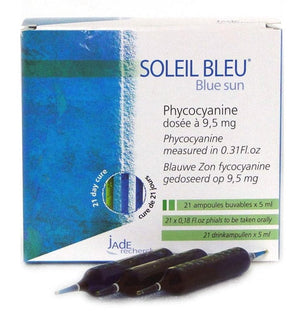
Les deux périodes idéales pour renforcer nos défenses naturelles, donc notre immunité, sont le printemps et l’automne… C’est un des effets du cycle des saisons qui agit sur l’homme – et sur le vivant en général –, et qui est connu et pris en compte par les médecines de toutes les cultures depuis des millénaires. Mais cela ne doit pas nous empêcher de nous en préoccuper le reste de l’année, surtout à cause du contexte sanitaire qui a mis, et met toujours, notre système immunitaire à rude épreuve.
Qu’est-ce que le système immunitaire ?
Le système immunitaire est un dispositif complexe de défense de l’organisme qui, en cas de besoin, mobilise plusieurs types de cellules et fabrique les molécules adaptées pour combattre l’agression. Ces réponses de l’organisme sont de deux sortes.
Il y a d’abord le système de défense qui crée une immunité innée : il surveille le métabolisme en permanence pour détecter et combattre les cellules anormales, ou les cellules cancéreuses, ou encore celles qui sont infectées par un virus.
Il y a ensuite le système qui engendre une immunité adaptative : il a besoin de quelques jours pour se mettre en place après avoir repéré une agression, le temps de reconnaître l’ennemi pour ensuite l’éliminer. Ses cellules sont des lymphocytes T et B (en particulier ceux qu’on appelle les « cellules tueuses de l’organisme », les lymphocytes T CD8+), et elles se trouvent dans les ganglions lymphatiques.
Le système immunitaire fait donc la différence entre le « bon » et le « mauvais ». Ainsi, il élimine efficacement tous les intrus nocifs, étrangers à notre organisme. Sa fonction principale est de combattre les microbes (les virus, les champignons, les bactéries…) sans aucune aide extérieure. On mesure donc à quel point une fonction immunitaire perturbée a des conséquences invalidantes sur l’organisme, à court et à long terme.
Baisse de l’immunité : les causes physiologiques
Le système immunitaire est perturbé chez les personnes qui souffrent de maladies auto-immunes. Il crée alors des anticorps ou des cellules immunitaires qui s’attaquent à certaines cellules de l’organisme qu’il considère à tort comme des ennemies.
C’est possible chez les personnes souffrant de diabète de type 1 (qui provoque une hyperglycémie), de polyarthrite rhumatoïde (qui détruit peu à peu les articulations), d’une maladie de Crohn (qui crée une inflammation discontinue de la paroi intestinale), de sclérose en plaques (qui endommage les cellules de la gaine de myéline autour des neurones), d’une thyroïdite d’Hashimoto (qui entretient une hypothyroïdie) ou d’une maladie de Basedow (qui provoque une hyperthyroïdie).
Chez ces personnes, le système immunitaire peut être déréglé, à l’origine, par une susceptibilité génétique ou hormonale particulière. Ou encore par un excès d’hygiène et/ou une prise excessive d’antibiotiques durant la petite enfance. Il arrive aussi qu’elles aient été infectées par un microbe dont un des composants était similaire à un autre appartenant à un type de cellules de l’organisme.
La baisse de l’immunité peut aussi être provoquée par un microbiote en mauvaise santé. Le microbiote intestinal est la principale barrière contre les microbes : 70 % des cellules de défense de l’organisme sont en effet fabriquées au niveau de l’intestin. Une flore intestinale de qualité garantit donc une bonne immunité.
De plus, chez les personnes en surpoids et obèses, le tissu adipeux sécrète des adipocitokines, des protéines pouvant provoquer des micro-inflammations qui, lorsqu’elles deviennent chroniques, altèrent l’immunité.
Le temps qui passe et l’âge sont également des perturbateurs des cellules immunitaires. Vers la soixantaine, leurs compétences commencent à se dégrader. En particulier, les lymphocytes T réagissent de moins en moins bien aux agressions. L’organisme devient donc plus fragile lorsqu’il rencontre un microbe.
Baisse de l’immunité : les causes extérieures
La qualité de l’alimentation est un facteur important pour l’efficacité du système immunitaire.
Une alimentation qui n’est pas assez variée limite l’apport en nutriments indispensables au meilleur fonctionnement des défenses immunitaires. Or, on sait que l’alimentation est de moins en moins riche en nutriments à cause des modes de culture modernes. Par exemple, elle est devenue trop pauvre en vitamines C, B6, B9 et B12 et en certains minéraux comme le zinc, qui participent tous au bon fonctionnement du système immunitaire.
Une alimentation trop riche ou déséquilibrée, comme le fast-food, nuit aussi au système digestif, en particulier au microbiote intestinal qui joue un rôle clé dans l’immunité.
Une consommation excessive de sel peut également affaiblir l’immunité, en plus de favoriser l’augmentation de l’hypertension artérielle. Les personnes qui en consomment plus de 6 grammes par jour (ce qui correspond à la teneur en sel de deux repas de restauration rapide) peuvent développer un déficit immunitaire important.
Le manque de sommeil (en moyenne, moins de 6 heures par nuit) perturbe l’immunité et rend plus vulnérable aux infections. En effet, ce déficit écourte le temps du sommeil lent profond, celui qui favorise la fabrication des lymphocytes B qui sont capables d’enregistrer les caractéristiques des microbes puis de fabriquer les anticorps correspondants dans le cas d’une nouvelle agression.
Il faut aussi évoquer certains médicaments (les immunosuppresseurs) utilisés pour lutter contre certains cancers et maladies auto-immunes, et qui pour y arriver affaiblissent l’immunité. C’est aussi le cas de la cortisone quand on la prend sur le long terme.
Un quotidien stressant (il l’est de plus en plus pour de nombreuses personnes) est aussi un facteur de baisse de l’immunité. Le stress rend plus sensible aux infections, et celles-ci durent plus longtemps. Or, les hormones du stress stimulent les récepteurs qui se trouvent à la surface de certaines cellules immunitaires, ce qui les empêche de produire les substances chimiques inflammatoires qui permettent d’éliminer les virus.
Enfin, il y a l’action des saisons. En hiver, le manque de lumière agit sur le moral et crée du stress qui, lui-même, perturbe l’immunité. Il provoque aussi une baisse de production de la vitamine D. De plus, les températures qui chutent facilitent la pénétration des microbes dans l’organisme. Et la muqueuse nasale qui s’assèche perd de son efficacité. Elle laisse donc passer plus de virus. Le corps tout entier a une réponse immunitaire ralentie par le froid et lutte donc moins efficacement contre les agents pathogènes. Quant aux virus, leur enveloppe est plus résistante en hiver, ils sont donc mieux protégés contre l’action du système immunitaire.
Les signes d’une baisse de l’immunité
Quelle que soit l’origine de la baisse de l’immunité (maladies auto-immunes, alimentation, stress, saisons…), elle provoque une sensibilité accentuée aux infections, qui peut se manifester en provoquant :
- une baisse du tonus,
- une fatigue chronique,
- des rhumes et des grippes plus fréquents,
- des cystites à répétition,
- des vaginites à répétition,
- des éruptions d’herpès,
- des allergies,
- des yeux rouges et qui piquent,
- un ralentissement de la cicatrisation des plaies…
Au quotidien, vous vous sentez faible et fatigué, de mauvaise humeur. Vous avez plus de mal à vous concentrer sur votre travail. Vous manquez d’énergie, physique et mentale. Vos petites blessures s’infectent au lieu de cicatriser. Une simple grippe peut s’aggraver et devenir fatale. Vous êtes plus sensibles aux virus, comme celui du Covid.
Les allergies, si vous y êtes sujet, sont plus fréquentes, et le printemps peut devenir une saison très pénible à cause des pollens diffusés par les arbres et les fleurs, qui entraînent une production excessive de lymphocytes Th2 par rapport aux lymphocytes Th1. Un excès se traduisant par une surproduction d’anticorps spécifiques, les immunoglobulines du type E, qui déclenchent la réaction allergique.
Des solutions efficaces
Votre comportement au quotidien peut contribuer à protéger votre immunité et à l’améliorer lorsqu’elle est perturbée, donc moins efficace.
Par exemple, veillez à avoir le rythme de sommeil le plus régulier et suffisant possible : quand vous êtes éveillé, les lymphocytes T circulent dans votre sang pour lutter contre les infections. Mais quand vous dormez, ils se concentrent dans vos ganglions lymphatiques où des cellules spécifiques leur transmettent de l’information sur les micro-organismes infectieux circulant dans votre corps, pour qu’ils puissent les reconnaître puis les chasser. Sans un sommeil suffisant, vos lymphocytes T ne peuvent donc pas développer leur mémoire immunitaire et n’ont pas assez d’informations pour bien faire leur travail.
Il faut aussi veiller à avoir une alimentation saine, équilibrée, riche en légumes, en fruits et en produits frais, et qui comprenne le moins possible de produits transformés et non biologiques. Bref, des aliments riches en vitamines et en probiotiques de bonne qualité.
Une activité physique régulière est aussi un atout précieux pour conserver une immunité efficace : quand on pratique un sport, le corps se réchauffe et l’augmentation de sa température ralentit la croissance des bactéries. De plus, les activités sportives relaxantes diminuent la production des hormones du stress, donc leur action négative sur l’immunité.
Maintenir un poids de forme est aussi un facteur essentiel : si le corps fabrique trop de tissus adipeux, s’il reçoit trop d’apports énergétiques, si son estomac et ses intestins sont constamment sollicités, il perd beaucoup de temps et d’énergie à gérer ces excès, aux dépens de son immunité.
Enfin, en essayant d’éviter les situations de pression, de trac ou de tension, et en favorisant les activités relaxantes, on fabrique moins d’hormones du stress dont l’action réduit la réponse immunitaire.

Les compléments indispensables
On sait aujourd’hui qu’à cause des méthodes modernes de culture et d’élevage, de la pollution de l’air et de l’eau, et de la présence des ondes électromagnétiques, l’alimentation n’apporte plus en quantités suffisantes tous les micronutriments nécessaires à une bonne santé en général, et à une immunité efficace en particulier. Dans ces conditions, les compléments alimentaires sont devenus des alliés précieux.
Ils sont utiles toute l’année pour combler ces lacunes, et pas seulement aux périodes saisonnières de baisse de l’immunité. Il s’agit principalement des vitamines, du magnésium, du zinc, du fer et des probiotiques.
La vitamine A est indispensable pour stimuler vos défenses immunitaires. Elle est liposoluble, donc se dissout dans les graisses et les huiles. Dans l’organisme, elle intervient dans la croissance des os et la pigmentation de la rétine. Un bon dosage est indispensable car la carence aussi bien que le surdosage peuvent gravement toucher l’organisme. Pour ce qui concerne le système immunitaire, elle booste le développement des lymphocytes dont la mission est de défendre l’organisme contre les infections.
Les vitamines B sont au nombre de huit, qui servent à stimuler vos défenses naturelles, en particulier les vitamines B6, B9 et B12. Elles sont hydrosolubles et se dissolvent dans l’eau. La vitamine B9, ou acide folique, participe en particulier au bon fonctionnement du système immunitaire. Et la B12 permet le renouvellement cellulaire.
La vitamine C est aussi très importante pour le bon fonctionnement du système immunitaire, mais l’organisme n’est pas capable de la stocker ni de la synthétiser. Elle est utile en particulier avant ou après une activité sportive ou physique, ou chez les femmes enceintes. Elle permet aussi de stimuler la production des cytokines qui activent la réponse immunitaire en cas d’intrusion de microbes. Un apport suffisant est donc indispensable pour permettre au système immunitaire de bien faire son travail.
La vitamine D est indispensable au système immunitaire. Elle est liposoluble. L’organisme la synthétise grâce aux rayons ultraviolets du soleil au niveau de la peau. C’est, en fait, une hormone qui a plusieurs fonctions : elle est très stimulante pour nos défenses naturelles, elle est utile pour renforcer les os en absorbant du calcium et du phosphore, et elle active les globules blancs. Une carence en vitamine D est fréquente en hiver.
La vitamine K2 (ménaquinone) est en grande partie synthétisée par les bactéries intestinales. Des études récentes ont montré que sa carence pouvait provoquer l’apparition de formes sévères du Covid.
Le magnésium facilite la synthèse des immunoglobulines, protéines essentielles qui reconnaissent les cellules immunitaires et agissent sur leurs bonnes liaisons et leur fixation. Il participe aussi au développement des lymphocytes T, les « cellules tueuses » des virus et des cellules cancéreuses. Il joue également un rôle essentiel pour fixer la vitamine D qui agit fortement sur l’immunité.
Le zinc est présent en petites quantités dans l’organisme, mais il y joue un rôle très important, entre autres dans le développement et le fonctionnement des cellules immunitaires. Il active les lymphocytes B et T, et participe donc à réduire la durée et l’intensité des symptômes d’une baisse de l’immunité. Par exemple, en hiver, il contribue efficacement à lutter contre le rhume et la grippe. Ou encore, si les défenses immunitaires s’emballent quand la présence d’un agent nocif entraîne une production trop abondante de globules blancs, donc une réponse inflammatoire nocive (l’orage cytokinique), il participe à la création d’un bouclier de défense. La présence de zinc en quantité suffisante dans l’organisme renforce aussi sa résistance face aux allergènes. Enfin, le zinc agit sur les virus et les bactéries.
Le fer, en cas de carence, entraîne une diminution spectaculaire des neutrophiles, des globules blancs qui sont essentiels au bon fonctionnement du système immunitaire. Or, la carence en fer est plutôt fréquente au sein de la population.
Les probiotiques introduisent dans le système digestif des bactéries spécialisées qui soutiennent et stimulent l’action du microbiote intestinal, qui évitent la prolifération de germes et qui rétablissent en partie l’équilibre de l’immunité innée.
Notre système immunitaire est de plus en plus agressé, et les conséquences de plus en plus visibles dans la population. Tous les compléments alimentaires indispensables au bon fonctionnement de l’immunité sont disponibles sur notre site de produits naturels.
Dans la boutique
























